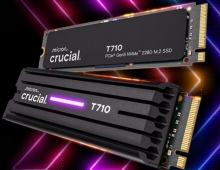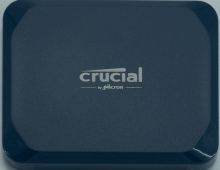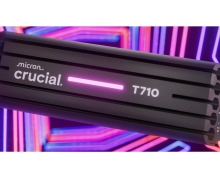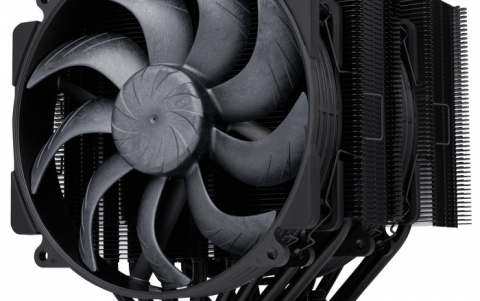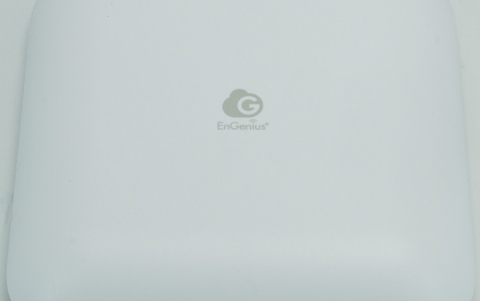Crucial MX100 512GB SSD review
3. HDTachRW, HDTune
Here is our testbed:
- Motherboard: Foxconn Quantum Force Rattler P67 vP04 BIOS
- Processor: Intel Core i5-2500K
- Case: Open Air testbed
- Power Supply Unit: Club 3D CSP-X1000CB 1000 Watt
- Graphics card: Club3D Radeon HD 6790 CoolStream Edition
- Memory: OCZ Gold PC3-10600 4x2GB 1333@CL9
- HDD: WD 500GB 7200RPM
- Monitor: LG L246WH-BH 24"
- Windows 7 x64 SP1 with latest updates installed
For the tests, we used the following software:
- HDTachRW v3.0.1.0
- HD Tune v4.50 Pro
- Crystal DiskMark v3
- ATTO Disk Benchmark v2.46
- ASS SSD Benchmark 1.5xxx
- IOMeter v2006.07.27 with Xtreme Benchmark template
- PCMark Professional edition v1.04
- Anvil Storage Utilities 1.0.34. Beta 11
We start the tests with the HDTachRW software. The software measures the sequential read speed, the random access speed and sequential write speed.
The drive gave 299.3 MB/s and 435.3 MB/s on average for sequential reads and writes, respectively. The performance is pretty close to what we had experienced with the previous Crucial SSD, the M550:
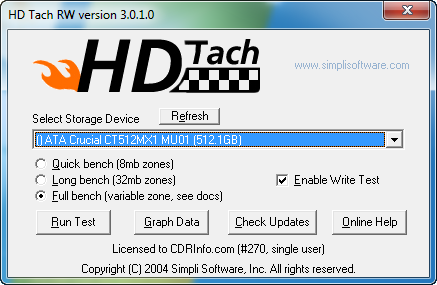

We move on to the HD Tune Pro software, another utility we used to measure the drive's reading and writing performances. Although not necessarily representative of real-world workloads, HD Tune's targeted tests give us a glimpse of each drive's raw capabilities.
This time the sequential reading test returned a 214.5 MB/s average speed and the corresponding sequential writing test a 185.2 MB/s average, which are both lower than we expected:

As you see in the screenshot below, writing was not stable across the data sequence and the reading speed was slow after the 153MB mark of the graph, resulting to a low overall average writing speed:
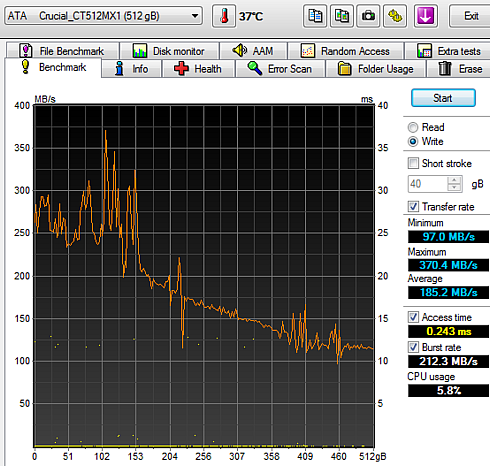
HD Tune's file benchmark consists of two parts: the transfer speed test and block size test. The transfer rate test measures three different parameters for both reading and writing:
- Sequential: the sequential speed is measured and shown on the graph. Ideally the transfer speed line should be straight and smooth.
- 4 KB random single: this test measures the performance of I/O operations of 4096 byte blocks - the most common I/O operation on a typical system. Especially the 4 KB write speed is an important indication of general system performance.
- 4 KB random multi: this test is similar to the 4 KB random single test except that multiple requests are sent simultaneously to the device. We set the number of operations to 32.
Below you see random reading test, where the MX100 gave a 489.017 MB/s average reading speed for an 1MB transfer size and a 466.07 MB/s average reading for transferring files with random sizes - a pretty good performance, again almost in par to what we had experienced with the M550 SSD.

HD Tune's file benchmark also features three data patterns available that can be used during the write process: zero, random and mixed, which is a combination of zeroes and random data. Certain SSDs use a compression technique which improves performance when compressible data is used. For these devices the results will be highest when writing zeroes and lowest when writing random data.
Let's start with a sequential transfer speed of a 500MB file using zeros in the writing part:
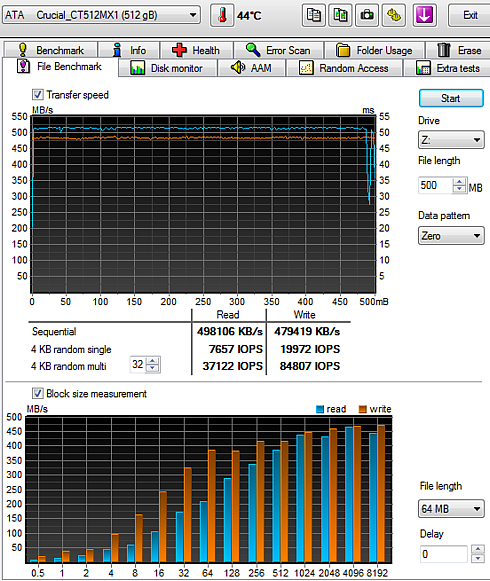
The Crucial MX100 drive read the 500MB file at an average speed of 498.10 MB/s and wrote the file at 479.42 MB/s - pretty fast in both cases. The 4K random single performance with 4096 byte blocks was 7657 IOPS for reading and 19972 IOPS for writing, which are also fast, although the writing part was a little slower than what we had seen with the M550 model. When we enabled the 32 requests option, both figures were boosted up to 37122 IOPS and 84807 IOPS for both read/write, respectively.
Selecting the "Random" data pattern (zeroes and data) had not any serious impact to drive's sequential read performance:
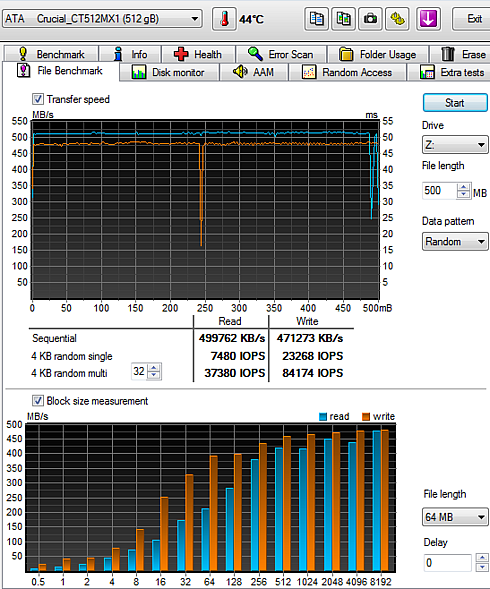
The reading result with a "mixed" data pattern was also very high.
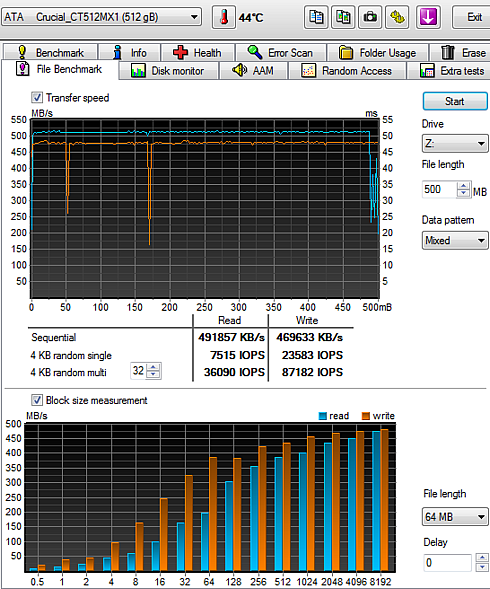
Below you see some additional sequential and random reading and writing tests:






